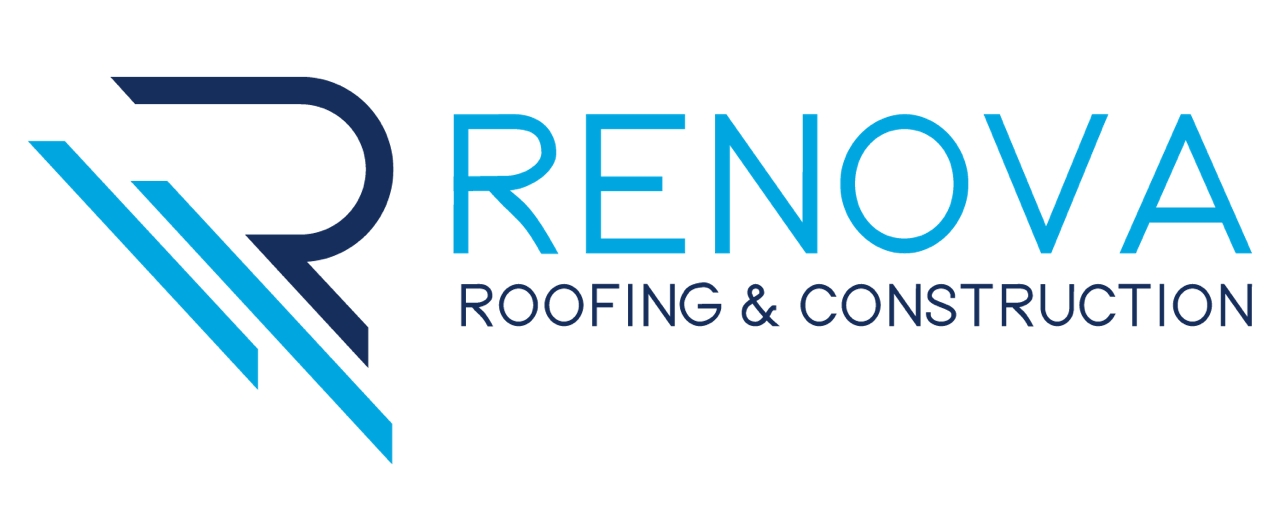Ever wonder what a PVC roofing membrane is and how much it costs? PVC roofing membranes, made from polyvinyl chloride, are a popular choice for property owners who want durable and low-maintenance roofs. They shield buildings from harsh weather, fire, and chemicals.
In our guide, we will delve into the world of PVC roofing membranes. We’ll explore its benefits, limitations, how it compares to other materials, and the factors influencing how much it costs. By the end of this blog post, you’ll be equipped with all the knowledge you need to make the best choice for your building.
What Is PVC Roofing Membrane?
PVC (polyvinyl chloride) roofing membranes are a popular choice for commercial roofing systems. It is a synthetic, thermoplastic material that is highly durable, flexible, and weather-resistant. PVC roofing membranes are typically installed in a single-ply system, meaning they are applied as a single layer, which can be mechanically fastened, adhered, or ballasted to the roof surface. The material is resistant to UV radiation, chemicals, and punctures, making it a reliable choice for various climates and environments. PVC roof membranes are also known for their ease of installation and long lifespan, which can often last for about 20 to 30 years or more with proper maintenance.
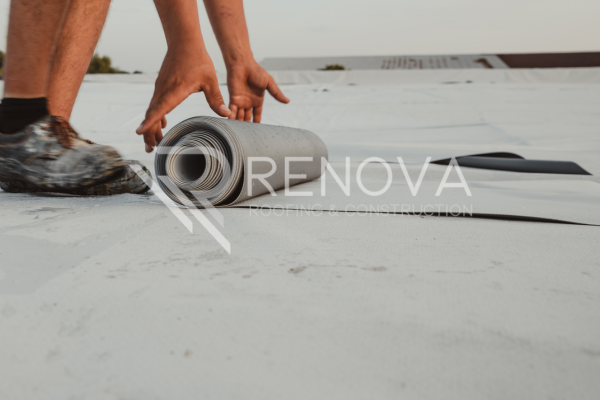
What Are The Types Of PVC Roofing Membranes?
When it comes to PVC roofing membranes, there are a few different types to consider for your commercial or industrial building. Let’s take a closer look at the main options:
Reinforced PVC Membranes
These PVC roofing membranes are strengthened with an internal fabric or scrim, typically polyester or fiberglass. The reinforcement adds extra durability and dimensional stability to the membrane, making it more resistant to tearing and punctures. Reinforced PVC membranes are a popular choice for roofs that may experience higher levels of foot traffic or potential damage.
Fleece-Backed PVC Membranes
Fleece-backed PVC membranes have an additional layer of fleece material laminated to the underside of the PVC. This fleece layer adds insulation and is an adhesive, helping the membrane adhere securely to the roof deck. Fleece-backed PVC is often preferred for roofs with uneven or irregular surfaces, as the fleece backing can conform to the substrate more easily.
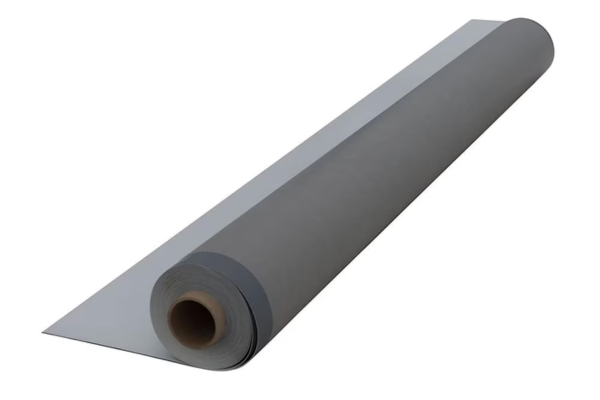
PVC KEE Membranes
The PVC KEE membrane revolutionizes reflectivity and UV resistance. Its blend of polyvinyl chloride and ketone ethylene ester ensures superior durability against weather elements. Widely adopted for roofing, it guarantees long-lasting protection and peace of mind.
Colored or Reflective PVC Membranes
To enhance the aesthetic appeal or energy efficiency of a building, PVC membranes can be manufactured in a variety of colors or with reflective coatings. These specialized PVC products can help complement the building’s design or improve its thermal performance by reflecting sunlight and reducing heat absorption.
What Are The Advantages Of PVC Roofing Membranes?
PVC roofs come with a host of benefits, making them a top pick for businesses. Here’s why PVC membranes are a smart choice for your roofing needs:
Exceptional Durability
PVC roofing membranes are highly resistant to weathering, UV radiation, and chemical exposure. With proper upkeep, PVC roofs can uphold their structural integrity and functionality for an extended period, frequently lasting 20-30 years or longer.
The PVC material is formulated to withstand the harsh environmental conditions that roofing systems are subjected to, ensuring long-lasting protection for the building.
Reliable Waterproofing
PVC roofing membranes provide excellent waterproofing protection, preventing leaks and water infiltration, which is a critical requirement for commercial and industrial roofing systems. The seamless and rigid design of PVC roofing systems ensures a reliable barrier against water intrusion, safeguarding your building’s interior from moisture-related damage.
Fire Resistance
PVC roofs are inherently fire-resistant, meeting strict fire safety standards and providing an added layer of protection for the building. This fire-resistance can be beneficial in high-risk environments or areas with strict building codes.
Energy Efficiency
Many PVC membrane roofs are designed with reflective or light-colored surfaces, which can help reduce the building’s energy consumption by reflecting solar heat and reducing the cooling load. This could result in substantial savings on energy expenses for the building and contribute to its overall environmental sustainability.
Sustainable Recycling
At the end of their useful life, PVC roofing membranes can be recycled, contributing to their sustainability and reducing the environmental impact of roofing waste. This recycling process allows the PVC material to be reused in new products, further enhancing the eco-friendliness of these roofing systems.
What Are The Limitations Of PVC Roofing Membranes?
While PVC roofing membranes offer numerous advantages, there are also some limitations to consider when selecting this roofing material for your building. Here are some disadvantages of PVC roofs:
Potential Sensitivity to Certain Chemicals
PVC roofing membranes can be sensitive to certain chemicals and solvents, which can cause the material to swell, soften, or degrade over time. This may require additional precautions during installation and ongoing maintenance to protect the integrity of the roofing system.
Compatibility with Other Roofing Materials
PVC may not be compatible with certain other roofing materials, such as asphalt-based products or some types of insulation. This can limit the flexibility in design and installation, requiring careful consideration of the overall roofing system.
Expert Installation
Proper installation of a PVC roofing membrane requires specialized training and equipment. Welding seams and correct attachment to the roof substrate are critical to ensuring the system’s long-term performance, which can add to the overall project cost and complexity.
What Factors Influence The Cost Of PVC Roofing Membranes?
A PVC roofing membrane can cost around $5 to $12 per square foot. However, when considering the installation of a PVC roofing membrane, it’s essential to understand the various factors that can affect the overall cost. Here are the key factors:
- Raw Material Costs: The price of polyvinyl chloride resin, the primary component in PVC roofing membranes, can greatly impact the overall material costs.
- Transportation and Logistics: The distance between the PVC roofing manufacturing facility and the project site impacts transportation costs. Freight fees, fuel prices, and the mode of shipping (truck, rail, etc.) contribute to the logistics expenses.
- Installation Requirements: The complexity of the roof design and the specialized labor needed for proper installation can significantly add to project costs. Roof slopes, the use of specialized equipment, and the experience level of the installation crew are all factors to keep in mind.
How To Install A PVC Roofing Membrane
Before a PVC membrane roofing system can protect your building, it must be properly installed. Here’s a brief overview of the installation process:
Prepping The Surface
The first crucial step involves thoroughly cleaning and inspecting your roof surface to ensure it is free from any debris, dirt, or imperfections. This preparation ensures proper adhesion and a smooth surface for the PVC membrane.
Laying Down the Membrane
Once the surface is prepared, the PVC membrane sheets are rolled out and positioned onto the roof surface according to the layout plan. Care is taken to ensure the membrane is aligned correctly and covers the entire roof area.
Securing Your PVC Membrane
Then, the PVC membrane is securely fastened to the roof substrate using either mechanical fasteners or adhesives. This step ensures that the membrane is firmly anchored and lays flat and smooth without any wrinkles or bubbles.
Sealing the Seams
After that, to create a continuous and watertight barrier, the seams between adjacent membrane sheets are sealed using heat welding techniques. This process ensures that water cannot penetrate the seams, preventing leaks and water damage.
Adding Flashing
Then, flashing materials, such as metal or PVC strips, are installed around roof penetrations (like vents or chimneys) and along the edges of the roof. The flashing helps to redirect water away from vulnerable areas and prevent water infiltration.
Quality Check
After the installation, a thorough inspection is carried out to confirm the proper installation of the PVC membrane roofing system. Any areas of concern or potential leaks are identified and addressed during this final inspection to ensure the long-term performance and durability of the roof.
Difference Between PVC and EPDM
PVC and EPDM (ethylene propylene diene monomer) differ in composition and performance. PVC is a synthetic material that offers superior durability and potential energy savings due to its reflective surface. EPDM, a synthetic rubber, is known for flexibility and ease of installation but may lack PVC’s energy efficiency. Each suits different needs, balancing cost, durability, and energy efficiency.
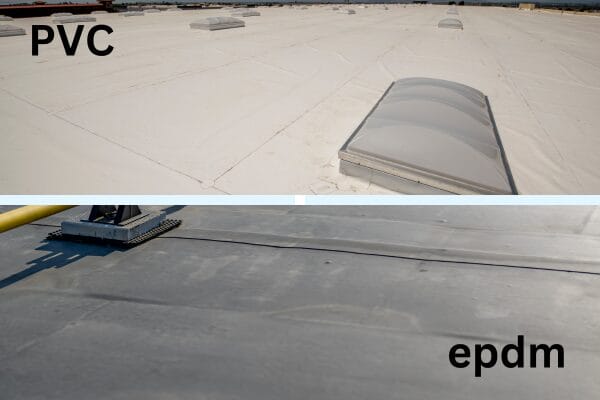
Differences Between PVC and TPO
PVC is a synthetic plastic material known for its durability, flexibility, and heat-welded seams. In contrast, TPO (thermoplastic polyolefin) is a single-ply membrane made from a blend of polypropylene and ethylene-propylene, offering excellent weathering resistance and reflective properties. While PVC is more flexible, TPO is generally more cost-effective.
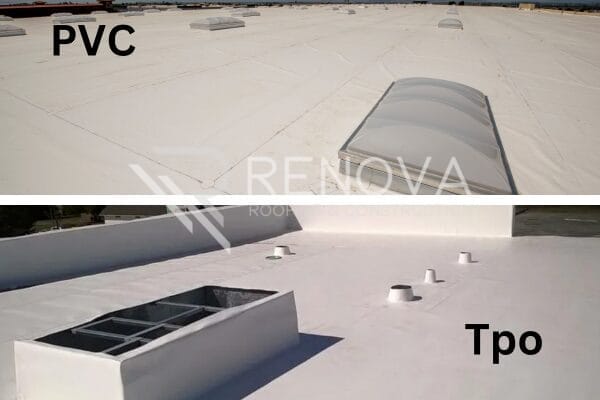
Conclusion
When considering PVC roofing membranes for your property, it’s essential to weigh the initial cost against long-term benefits such as durability, energy efficiency, and low maintenance requirements.
Renova Roofing & Construction offers professional installation services to ensure your PVC roofing membrane is installed correctly and provides reliable protection for years to come. Contact us at (601) 647-3433 for expert assistance with your PVC roofing membrane installation needs.
